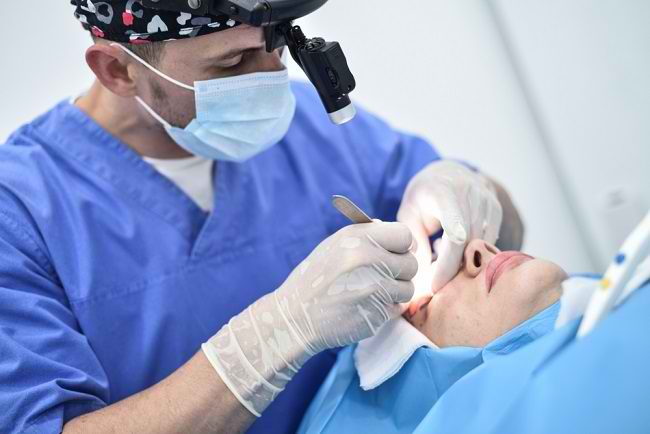You may feel scared or worried when you learn that you will need to be given a local anesthetic for a minor (minor) operation. So that you don't panic and better understand that it is actually safe to use local anesthesia for minor surgeries, you should refer to the following explanation.
Local anesthesia for minor surgeries, such as tooth extractions and skin biopsies, is intended to keep you from feeling pain during the procedure. The difference with general anesthesia, you remain aware when the anesthetic has been given.

Local anesthetics work by preventing the nerves in the operated area from communicating the sensation of pain to the brain. That way, you don't feel pain when the operation is performed.
Advantages of Local Anesthesia compared to General Anesthesia
General anesthesia can cause more severe side effects, such as nausea. In addition, if you are given general anaesthesia, your doctor will also have to monitor your condition during the surgical procedure and for some time afterward.
While under local anesthesia, side effects of nausea are less common and monitoring is generally not required. In fact, local anesthesia allows for many surgical procedures to be performed quickly. It also requires less preparation and shorter recovery time.
Not only that, with local anesthesia, the costs incurred are also more affordable than general anesthesia.
Types of Local Anesthesia and Indications for Minor Surgery
Based on the method of administration, local anesthetics are divided into two types, namely topical local anesthetics and injectable local anesthetics. Here is the explanation:
Topical local anesthetic
A topical local anesthetic is usually applied to your skin or mucous membranes, such as the inside of your mouth, nose, or throat. This type of anesthetic can also be applied to the surface of the eye. Topical local anesthetics can be found in the form of liquids, creams, gels, sprays, and patches. patches ).
Some procedures that require a topical type of local anesthetic are:
- Wound suturing or suture removal
- Catheter insertion
- Action with laser
- Cataract surgery
- endoscope
Local anesthetic injection
Injectable local anesthetic is used to numb certain areas of the body during surgical procedures, and is administered by injection. Minor surgeries that may be performed with a local anesthetic injection include:
- Wound suturing
- Flesh piercing nail removal
- Skin biopsy
- Removal of lumps under the skin
- Removal of moles or warts
- Dental treatment, such as root canals
Local Anesthesia Preparation and Procedure
You do not need to do much preparation if you are going to undergo minor surgery under local anesthesia. However, be sure to tell your doctor if you:
- Have an open wound near the area to be operated on
- Are taking any supplements or medications, especially those that increase the risk of bleeding, such as aspirin
- Have a bleeding disorder
If the doctor has decided to operate with a local anesthetic, you will be given this anesthetic shortly before the operation. Although the area of your body that is being anesthetic will be numb, you may still feel a sensation of pressure during the operation.
A local anesthetic can be given by being applied to the skin or injected into the area where the surgery will be performed. If injected, a local anesthetic is generally administered with several small injections.
A few minutes after the local anesthetic is given, the area will be completely numb. However, if the anesthetized area still has sensation, tell the doctor so that an additional injection or topical anesthetic can be given to make sure the area to be operated on is completely numb.
The local anesthetic usually wears off within 1 hour, but it can take longer. When the effect wears off, you may feel a tingling or twitching sensation in the area where the anesthetic was applied.
You need to be careful and pay more attention to the area that has been given a local anesthetic. The reason is, it is very easy to accidentally injure the numb area within a few hours after the operation is complete.
Local Anesthesia Side Effects
Local anesthetics are generally safe and do not cause serious side effects, except for tingling. However, if too many injections of local anesthetic are given, you may experience the following side effects:
- Ears ringing
- Dizzy
- Twitch on the area that was given the anesthetic
- There is a metallic taste in the mouth
In very rare cases, high doses of local anesthetics can cause more serious side effects, including:
- Seizures
- Low blood pressure
- Slow heart rate
- Respiratory disorders
Allergy to anesthetics is a rare condition, but not impossible. If after being given the anesthetic you experience any of the allergy symptoms or side effects above, tell your doctor immediately so they can be treated as soon as possible.
Written by:
dr. Sonny Seputra, M.Ked.Klin, Sp.B, FINACS
(Surgeon Specialist)









